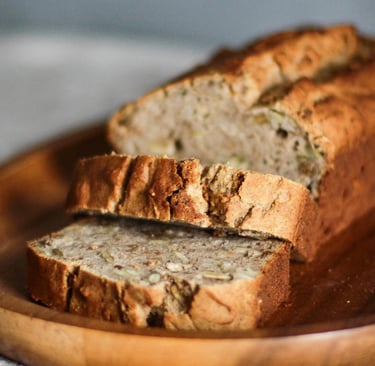CritiqoNet provides unbiased, independent research and authentic user feedback. We may receive a referral fee when you make a purchase through our affiliate links.
After Food Poisoning or a Stomach Bug: What's on the Menu for Recovery?
Experiencing food poisoning or a nasty stomach bug can feel like a relentless rollercoaster ride through nausea, cramps, and overall discomfort. But fear not, dear reader, for recovery is on the horizon! While the road to recuperation might seem daunting, your diet plays a pivotal role in accelerating the healing process and restoring your gut health. So, grab a seat and let’s embark on a flavorful journey towards recovery.
Understanding Your Needs
Before we dive into the delicious details of what to eat post-food poisoning or stomach bug, it’s crucial to understand your body's needs during this time. Dehydration is a common consequence of these ailments, so replenishing lost fluids is a top priority. Opt for clear liquids like water, herbal teas, electrolyte-rich drinks, and broths to keep hydration levels in check.
Furthermore, your stomach may still be delicate and sensitive, so it’s best to ease back into eating solid foods gradually. Start with bland and easily digestible options before reintroducing heavier or spicy meals.
Now, let’s explore the culinary delights that can aid your recovery and get you back on your feet in no time!
BRAT Diet
Bananas: Rich in potassium and easily digestible carbohydrates, bananas help replenish electrolytes lost through vomiting or diarrhea. They also contain pectin, a soluble fiber that can help bulk up stools and alleviate diarrhea.
Rice: Plain, white rice is a staple of the BRAT diet due to its blandness and gentle nature on the stomach. It provides easily digestible carbohydrates that offer a quick source of energy without exacerbating gastrointestinal distress.
Applesauce: Like bananas, applesauce is gentle on the stomach and provides essential nutrients such as vitamin C and fiber. Opt for unsweetened varieties to avoid added sugars that may aggravate symptoms.
Toast: Plain, white toast serves as a vehicle for delivering carbohydrates while also helping to absorb excess stomach acid. It can help ease nausea and provide a comforting base for other BRAT foods.
Plain Yogurt
Probiotics: Plain yogurt contains live and active cultures of beneficial bacteria, such as Lactobacillus and Bifidobacterium strains, which support gut health and aid in digestion. These probiotics help restore balance to the gut microbiota, which may be disrupted during episodes of food poisoning or a stomach bug.
Calcium: Yogurt is an excellent source of calcium, which is essential for bone health and muscle function. Consuming yogurt can help replenish this vital mineral, especially if vomiting or diarrhea has led to nutrient loss.
Protein: Plain yogurt provides a moderate amount of protein, which is necessary for tissue repair and immune function. Including protein-rich foods in your diet can help support the body's recovery process.
Cooked Vegetables:
Fiber: Cooked vegetables are a valuable source of dietary fiber, which promotes digestive regularity and supports overall gut health. Fiber helps bulk up stools and can alleviate constipation or diarrhea, depending on the individual's needs.
Vitamins and Minerals: Vegetables are rich in essential vitamins and minerals, including vitamin A, vitamin C, potassium, and magnesium. These nutrients play crucial roles in immune function, hydration, and overall well-being.
Antioxidants: Many vegetables contain antioxidants, such as beta-carotene and vitamin C, which help combat oxidative stress and inflammation in the body. Including a variety of colorful vegetables in your diet can provide a spectrum of antioxidants to support recovery.
Lean Protein
Muscle Repair: Lean protein sources like grilled chicken, turkey, or tofu provide the building blocks necessary for tissue repair and muscle recovery. After experiencing food poisoning or a stomach bug, the body may require additional protein to repair damaged cells and support overall healing.
Satiety: Including protein in your meals can help promote feelings of fullness and satisfaction, which may be beneficial if appetite loss was a symptom of your illness. Aim to include a source of lean protein in each meal to support your body's recovery efforts.
Herbal Teas
Peppermint: Peppermint tea is known for its ability to soothe digestive discomfort, alleviate gas and bloating, and reduce nausea. It contains menthol, a compound that has a calming effect on the muscles of the digestive tract.
Ginger: Ginger tea is a popular remedy for nausea and indigestion due to its anti-inflammatory and antiemetic properties. It can help soothe an upset stomach, promote digestion, and alleviate motion sickness.
Chamomile: Chamomile tea has mild sedative properties and is often used to promote relaxation and relieve anxiety. It also has anti-inflammatory effects that may help reduce stomach cramps and discomfort.
Tips for a Speedy Recovery:
Hydration is key! Drink plenty of fluids throughout the day to replenish lost electrolytes and aid in toxin removal.
Rest up and listen to your body. Avoid strenuous activities until you feel fully recovered.
Steer clear of spicy, greasy, or overly processed foods, as they may irritate your sensitive stomach.
Incorporate small, frequent meals into your day rather than large, heavy ones to prevent overwhelming your digestive system.
Consider taking over-the-counter remedies such as anti-diarrheal medication or probiotic supplements to aid in your recovery journey.
While food poisoning or a stomach bug may throw a wrench in your plans, it doesn’t have to derail your recovery entirely. By nourishing your body with gentle, nourishing foods and beverages, you can expedite the healing process and bounce back stronger than ever. Remember to be patient with yourself, listen to your body’s cues, and embrace the healing power of wholesome nutrition. Here’s to a speedy recovery and a return to vibrant health!


